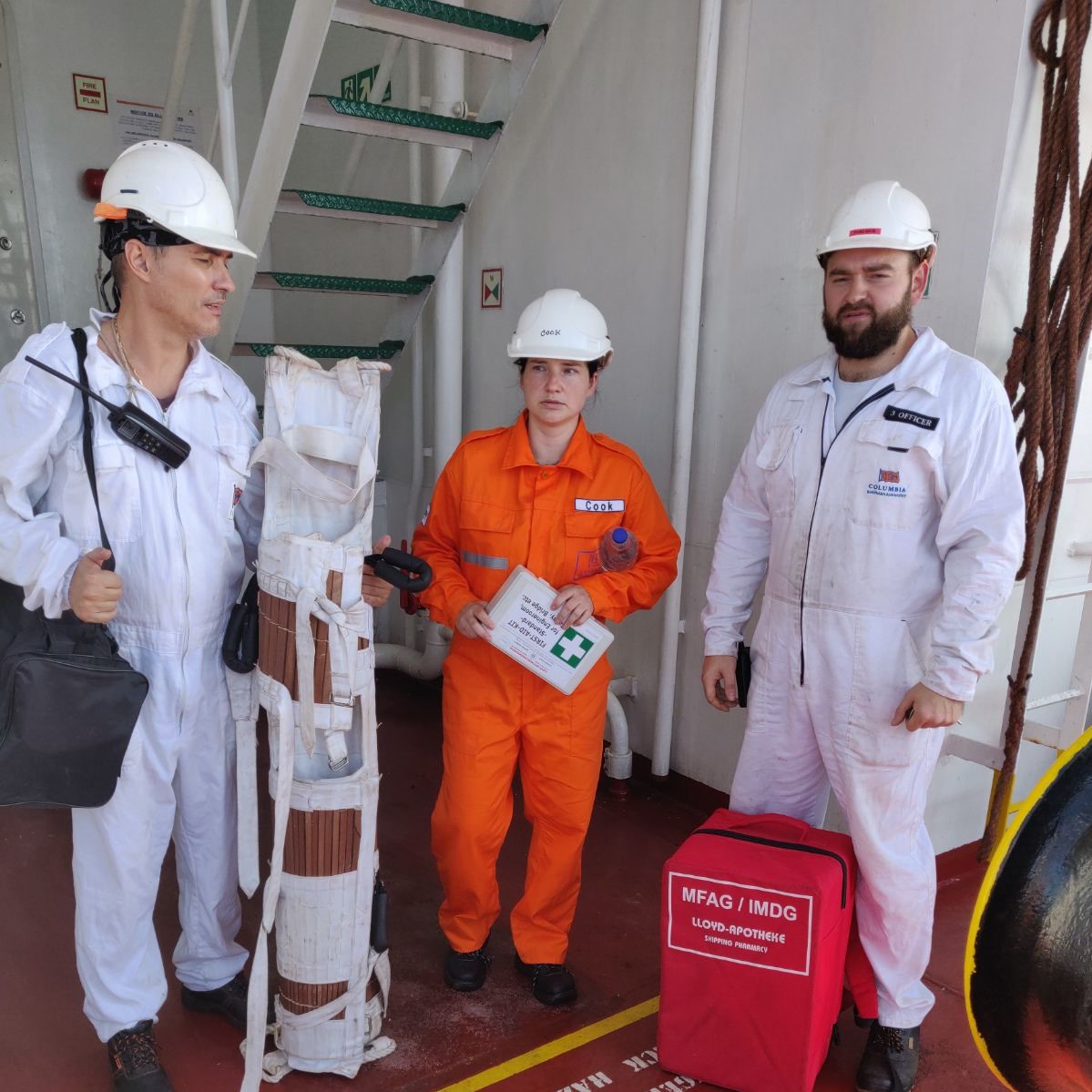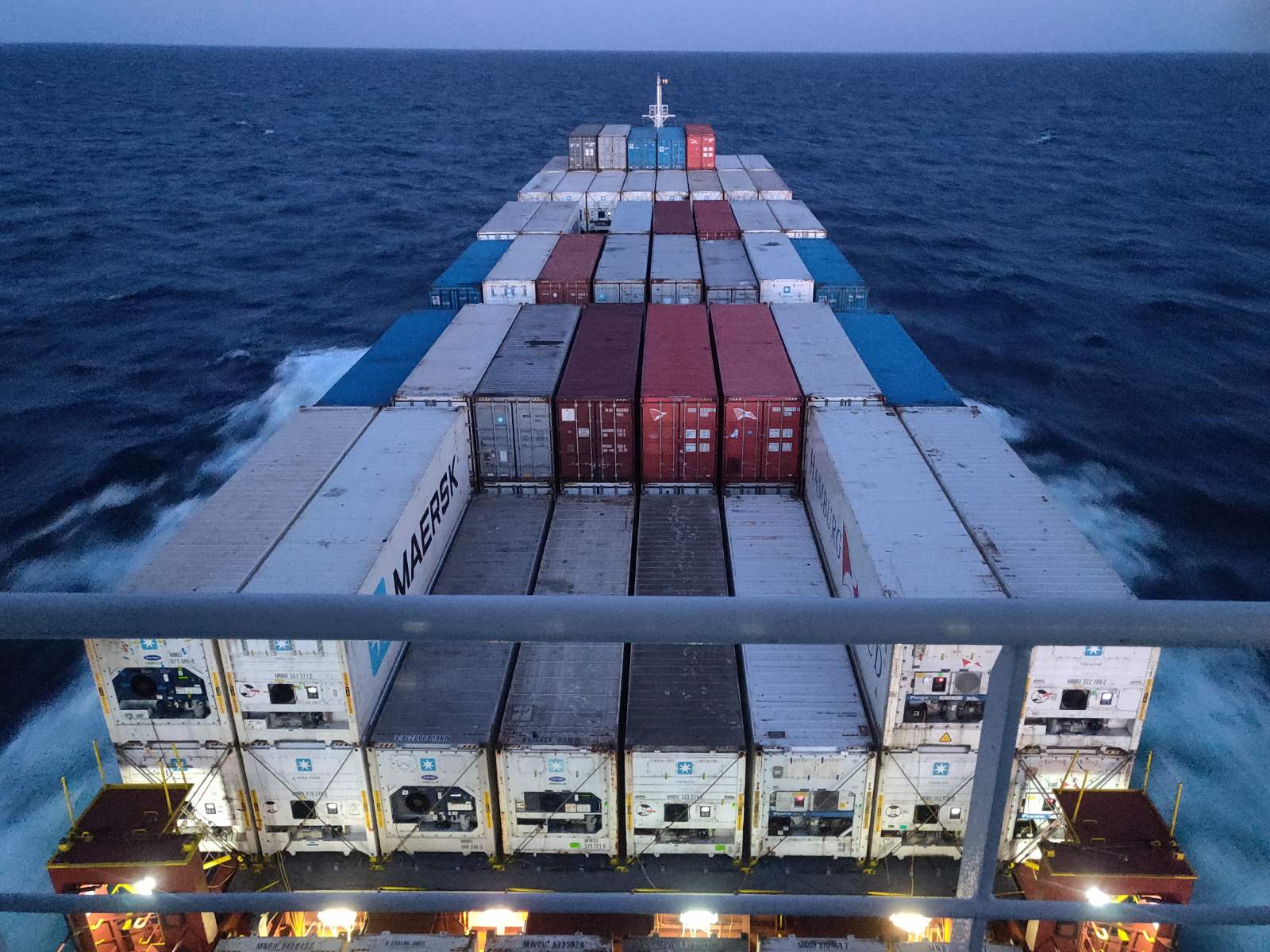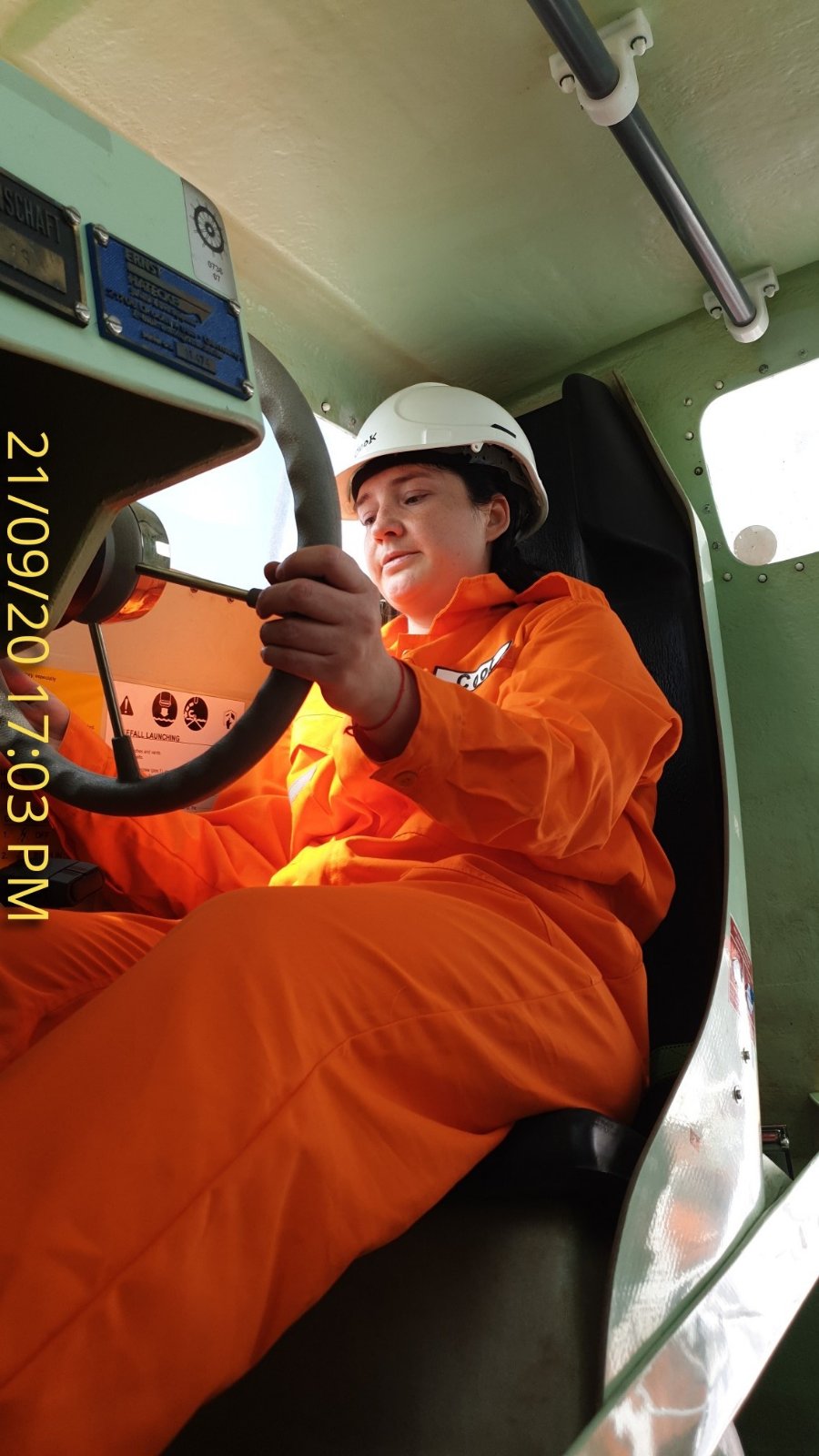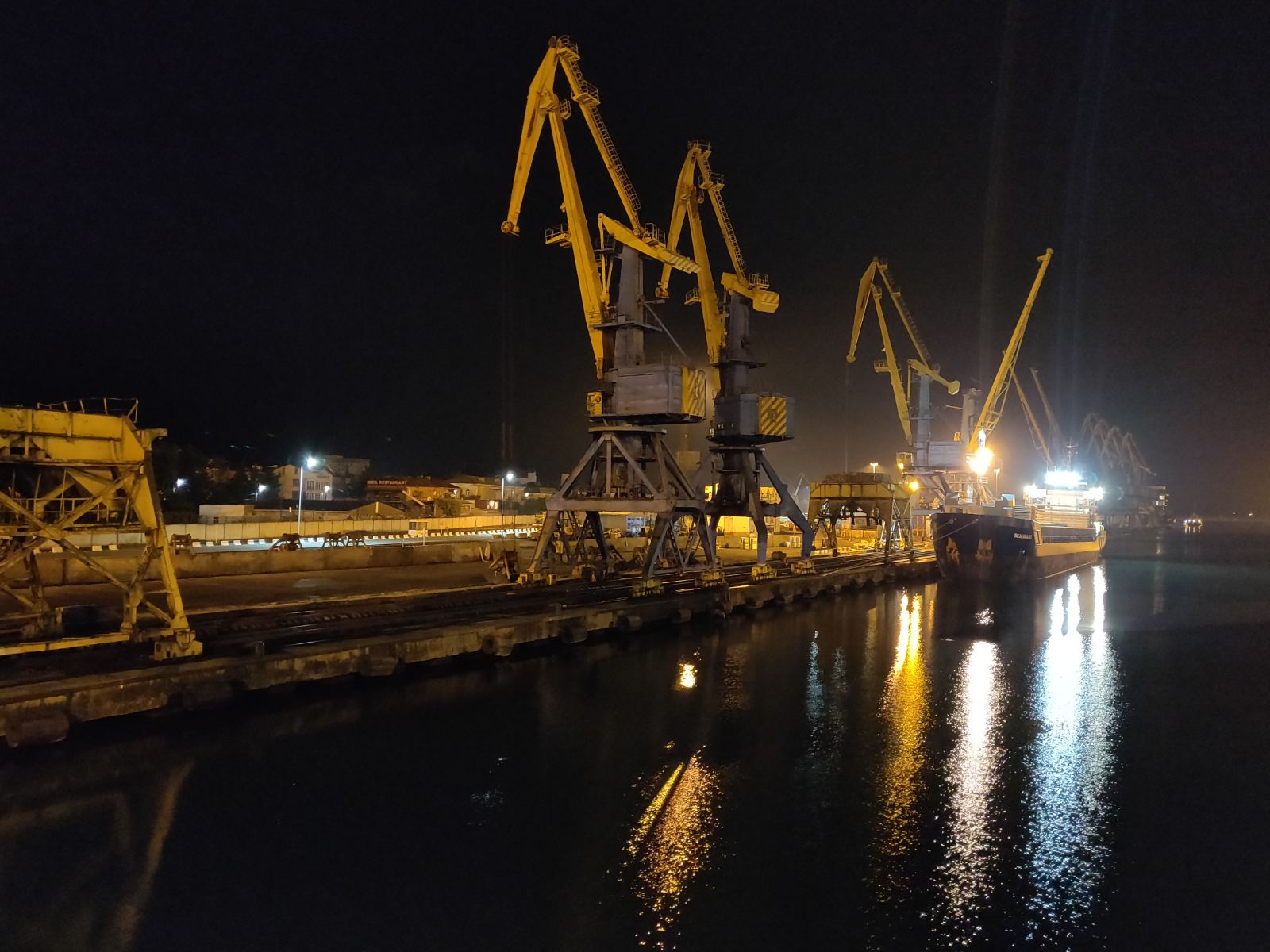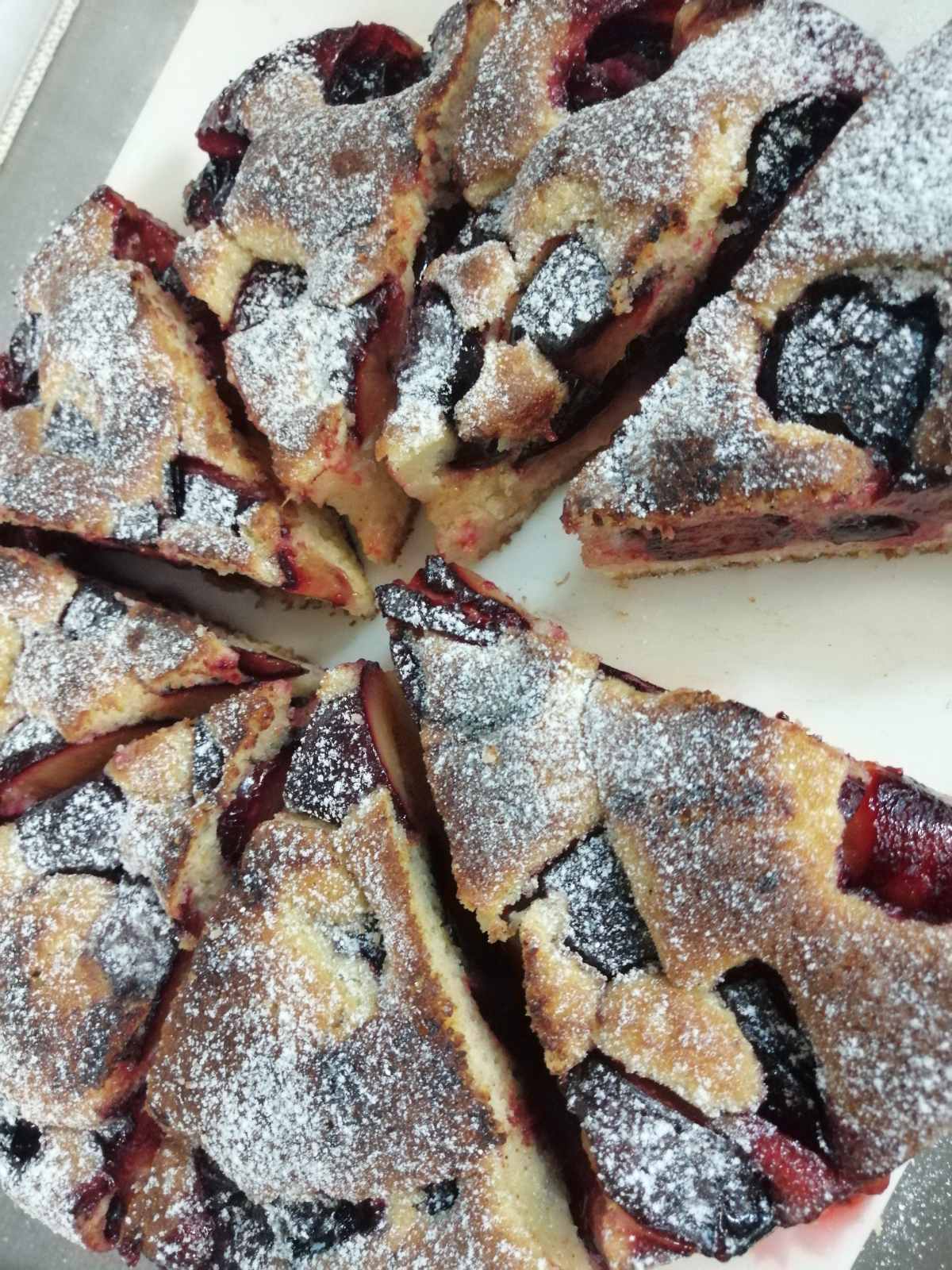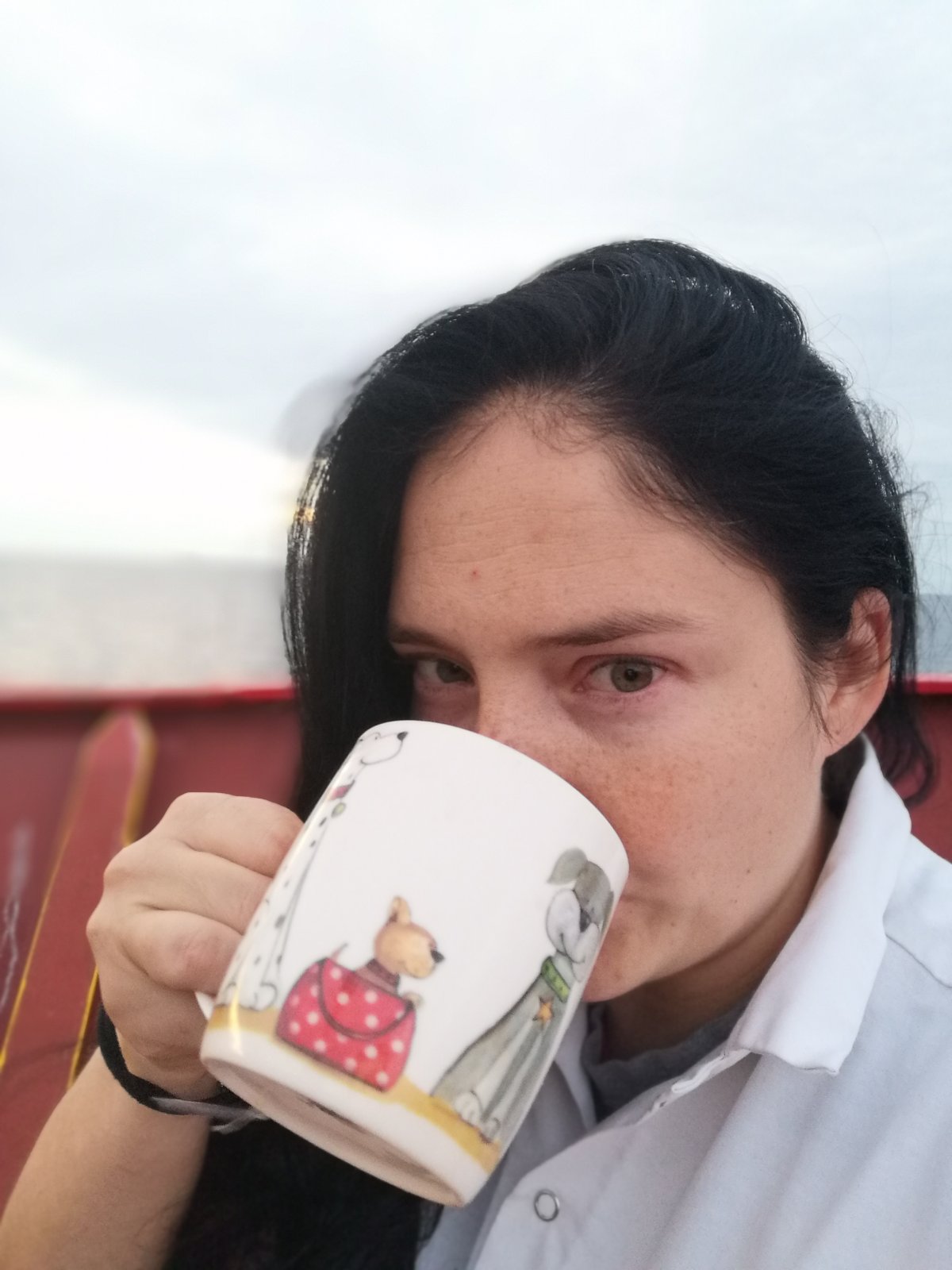“If you really want something, then everything will work out.”
Julia Snegovaya talks about how it works on passenger and merchant ships, and what it takes to win an international confectioners’ competition.
How did you become a chef and how did you get into the sea?
When I was little, my dad often took me fishing with him. We went to the Dnieper, and it is wide, and boats constantly sailed there. And as far as I can remember, I looked at them and dreamed – if only I could get on the ship! And I really wanted to be closer to the sea. And then, when I chose a profession, everything was much more complicated than now, and working as a cook was one of the few options for a woman at sea.
I entered a school in Kherson, and they were accepted there without entrance exams, on the basis of a good certificate. And already during the study it was possible to go to practice. The chief from the ship came to the school to select waiters, cooks, kitchen workers. A huge crowd gathered. Honestly, I don’t know how I managed to break through, but they took me there, and I studied only in the first year. You know, I was once again convinced that if you really want something, then everything will work out.
For practice, I went on a river-sea vessel “General Lavrinenko”. We went to Kherson, Odessa, Zaporozhye. The passengers were mostly foreigners, from “former ours”, mostly elderly people. Of course, getting a job there was very cool: you are still studying, you still don’t know much, but you can already slowly master the profession, and you also get money for it.
And how was the first contract?
Well passed. She was a kitchen worker. Then there was another contract. And in my second year of college, I realized that I would definitely need good English, and began to study additionally. And after a while I began to think about switching to large cruise ships, to large operators. And then I got to Columbia Shipmanagement. I have been with this company for more than ten years, now I will make a second contract on a container ship from them.
Not so long ago you were awarded. Can you tell me more about the prize?
One Danish company sent pastry chefs to train on their ships. The Danes are very cool in this regard, you can learn a lot from them. At the end of last year, they announced a competition: it was possible to put up for participation, for example, a pie. The rules required that it be a pie with a filling, and with which one it didn’t matter, it was important to declare the ingredients. I am a chef with experience and with my own view on the recipe. I experimented a little and decided to submit a plum tart for participation in the competition. It turned out great, I really liked it. The dough came out sweet, and the plum was a little sour. When I was baking, even the captain came running “by smell”. I cut off a piece for him to try, so he then followed me, asked for the recipe and asked me to teach him. In general, she sent an application with photographs, said that the cake can be eaten both warm and cold, and with ice cream. I received a response message that the preliminary results will be summed up on January 15th. And then I look – one Filipino and I won the competition. The prize is a tablet.
It is believed that there are more opportunities to see the world on passenger ships. You can go ashore more often. Is it really true?
Yes, sure. For example, we went to the cargo-passenger ferry on the Holland-England route, and every day there were calls to the port. On the ship, having your own clear schedule, you will always find time in this situation to visit the shore. The contract is two months, then a month at home. Knowing exactly the dates of boarding the ship and returning, it was also easy to plan everything, and there was no feeling of fatigue, boredom.
Tell us, how noticeable is the difference in work on the passenger fleet and on merchant ships?
There is practically no difference in wages. As for the rest… When you work for a “passenger”, you have a boss. On you – some part of the work, your area of \u200b\u200bresponsibility. There are steps for growth, and then you can become a chef yourself. But the general principle is clear: everyone who is connected with the galley on passenger ships has their own part of the processes, and the chief manages everything as a whole. On a bulk carrier, you’re in charge of everything in the kitchen. There is only a captain above you, and if he trusts you, he does not interfere in the processes at all. In this regard, it is more comfortable for me to work on merchant ships. And physically it is easier on a dry cargo ship. On the “passenger”, in any case, you must fully defend your hours and do the part of the work that you are supposed to do according to the staffing table. On a dry cargo ship, you do everything on your own: you plan, separate processes, order products, and at the same time you don’t run around like a stung, but calmly build your schedule. The specifics are slightly different. In general, if you are a cook, as they say, with brains, then you can handle everything.


